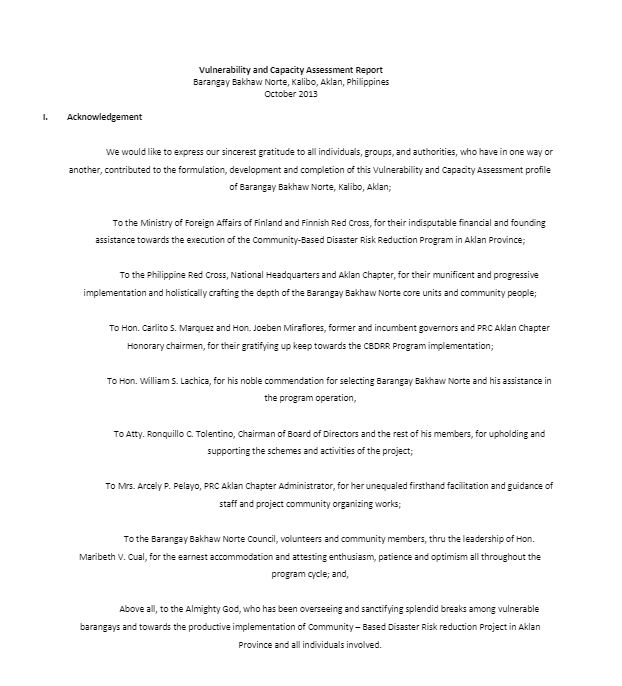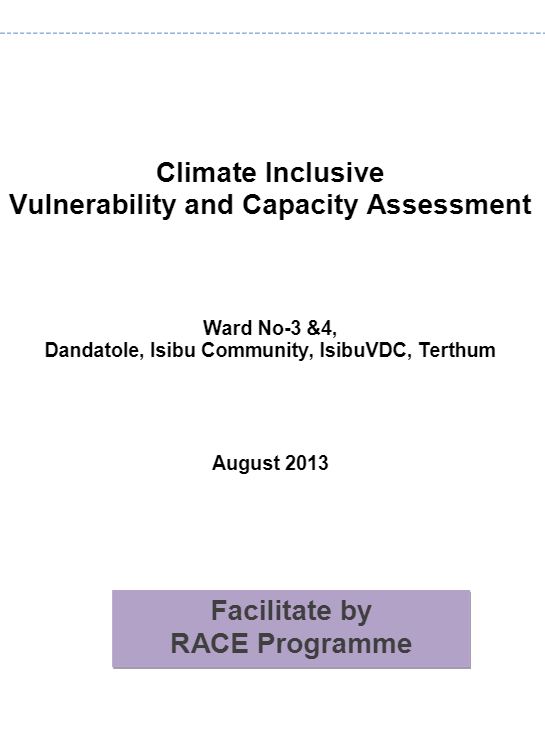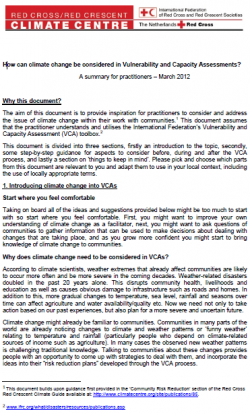A six-day Field School on Gender and Diversity in Vulnerability and Capacity Assessments was co-organized by the IFRC Bangkok Country Cluster Support team and Thai Red Cross Society between 21-26th May. This Field School is part of a wider, global effort to ensure the integration of gender and diversity in Vulnerability and Capacity Assessments (VCA) and Disaster Risk Reduction process for National Societies. The training was held in Ayutthaya and Sing Buri province in Thailand and was attended by six National Societies including Thai Red Cross Society, Lao Red Cross, Cambodian Red Cross, Philippine Red Cross, Malaysian Red Crescent, Nepal Red Cross, three Partner National Society representatives from American Red Cross (Vietnam), French Red Cross (Vietnam) and Australian Red Cross (Philippines), and the IFRC. The Field School was structured around in-class training and field visits to a nearby community. The community chosen experiences recurring flooding every year between August and November and have been working with the Thai Red Cross through their Community Based Disaster Risk Reduction Programme, to identify and reduce risk, and enhance coping strategies for all in their community.
Through a series of interactive sessions and participatory-based information gathering in the field, participants to the Field School addressed the importance of gender and diversity in VCA approaches, considering the differences of needs and priorities, vulnerabilities and capacities from different groups to ensure we ‘leave no one behind’ during our planning and assessment processes. The ultimate goal, to achieve greater individual and community resilience . Mrs. Dujdao Pengpak, 42, Village Head said “It was a good experience to exchange knowledge on the areas such as disaster prevention and I learned a lot especially in improving our old ways [of dealing with disasters] and making our community more resilient.”
Supporting Documents
» Agenda of the field school
» Concept Note
» Participant List
» Guidance Note: Gender and Diversity-Sensitive VCA
Supporting Resources
» Case Study: Mainstreaming Gender and Diversity in Disaster Risk Reduction Initiatives
» IFRC Strategic framework on gender and diversity – 2013 to 2020
» Infographic: A call to action: Preventing and Responding to Gender-based Violence (GBV) in disasters
» Minimum standard commitments to gender and diversity in emergency programming
» Snapshot: Focus on Gender and Diversity in Disaster Risk Reduction
» Unseen, Unheard: Gender-based Violence in Disasters – Asia-Pacific case studies
Outcome Documents
» Report
» Pre- and Post-Test results
» Trees as results of the brainstorming session
» For more information on VCA, go to VCA webpage at IFRC’s online library
» For more information on community resilience, go to:
» YouTube video: Roadmap to Community Resilience by IFRC
» Publication: Roadmap to Community Resilience: A step-by-step guidance on how to operationalize the IFRC’s Framework for Community Resilience (FCR).
Presentations
Day 1 and 2
» Introduction to Community Resilience and VCA Approach
» Gender and Diversity in VCA
» [Quiz Handout] Gender, Diversity and Violence
Day 3
» Community-based Disaster Risk Reduction (CBDRR) by Thai Red Cross Society




